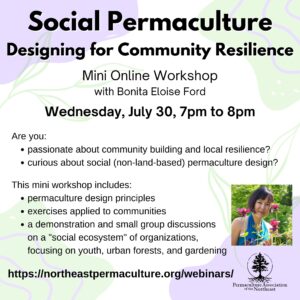
Social Permaculture
Social Permaculture Designing for Community Resilience Mini Online Workshopwith Bonita Eloise Ford Wed, July 30, 7pm to 8pm Are you passionate about community building and local resilience? curious about social

Social Permaculture Designing for Community Resilience Mini Online Workshopwith Bonita Eloise Ford Wed, July 30, 7pm to 8pm Are you passionate about community building and local resilience? curious about social
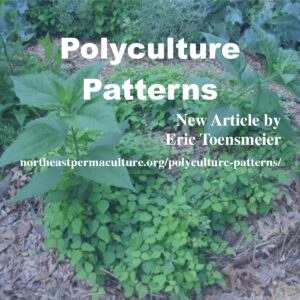
Read the full PDF article below (works best on a computer) or click on the “download” button to save the file (best for cell phones). PAN recently shared three new
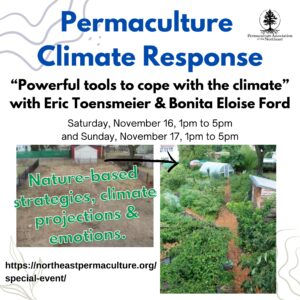
Permaculture Climate Response “Powerful tools to cope with the climate” with Eric Toensmeier & Bonita Eloise Ford Saturday, November 16, 1pm to 5pmand Sunday, November 17, 1pm to 5pm (Eastern
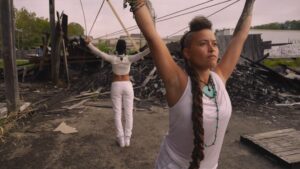
“Will we have the wisdom to survive climate chaos and planetary destruction?” This film offers four stories that answer this question, and invite its viewers to ask themselves, what am
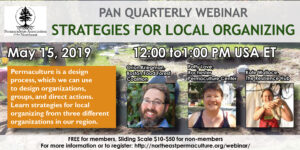
Remember – Webinars are fee for PAN Members! Non-members can join or choose a sliding scale $50-10. Permaculture is a design process, which we can use to design organizations, groups,
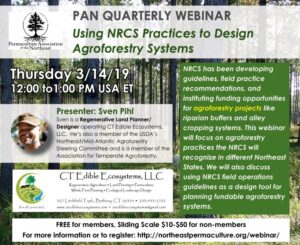
Want access? Email us for payment instructions or…psst, they’re free for members!
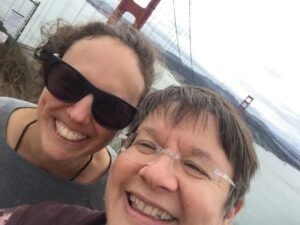
Written by Board Member, Patty Love I am both humbled and frustrated by how many important skills I still want to learn at the age of 54. I also struggle,
Registration is open…Look for all of the details here
Introducing a new webinar series hosted by the Permaculture Association of the Northeast (PAN). We will host a series of webinars designed to answer the question from our members, “What